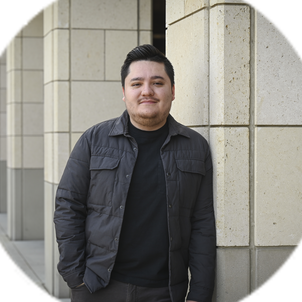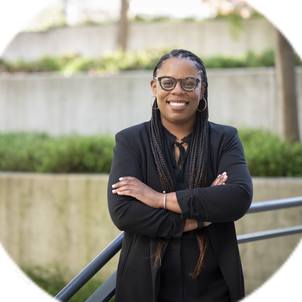If it malfunctions, the cell will fill up with waste and eventually shut down. We believe that several neurodegenerative diseases might start this way.
It’s an incredible feeling to dig into the fundamental causes of a disease and see it unfold at a molecular level. I love it. But to be honest, a career doing research like this wasn’t even on my radar as a kid. I grew up in Jerusalem during the first and second Palestinian uprising, and there were constant disruptions to daily life, like curfews, strikes and protests, and school closures. I think only maybe five years of my schooling were stable; for the rest, I was in classes just four or five months a year. I still did fine, though, thanks to my amazing teachers. I still remember my high school teachers coming from different regions of the West Bank during the second Palestinian uprising. To avoid the risk of being locked down if they went back to their towns, they would sleep in the school building during cold winters and hot summers. You don’t want to know what the building looked like.
Being a kid in a middle-class family, my parents always expected me to go to college, but thinking about becoming a scholar was a completely different story. There were no examples in my community of anyone doing research as a full-time job. My view of what a professor does was mostly shaped by lecturers I knew at local colleges or universities, so doing science for a living wasn’t something I saw as possible.
I think this happens a lot with students from underprivileged communities in the U.S. Even if you see someone in a job that you think is amazing, you can’t visualize yourself in that same job. In my case, I didn’t see myself being able to make research a career until I was doing my PhD.
Now that I have a lab of my own at Stanford, one of my goals is to give new students hands-on experience and confidence in doing research, so they can see the possibilities available to them. I’m especially interested in giving undergraduates that opportunity while training more senior students and postdocs, so they can participate in discovering something new. As a young student, something like that can change your life.
It’s challenging at the moment, since we don’t have full access to the lab – but science doesn’t just stop because of a pandemic. I’m still working with my students and trainees directly over video conferences, and we’re taking this time to refine our research ideas. We want to make sure we’re asking questions that matter not just to science, but to humanity in general, and we want to try to answer them in the most efficient way possible. At the end of the day, it’s about finding something that benefits human health.
Related spotlights

Lara Weed

Sebastian Fernández

